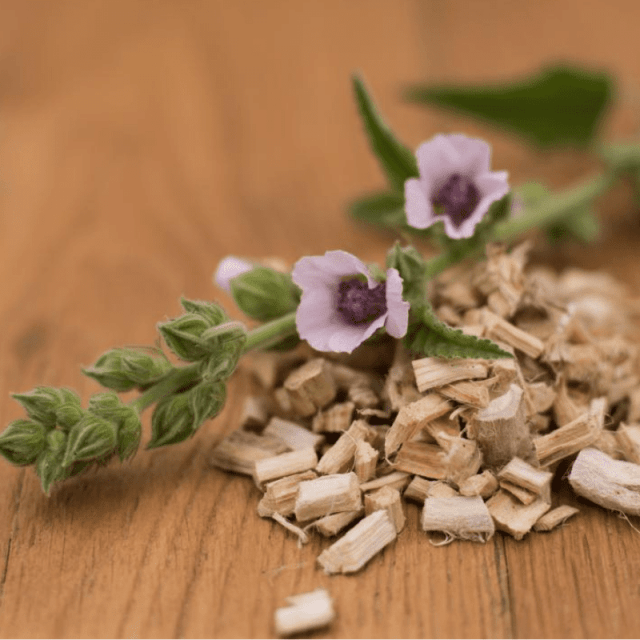The Best Herbal Remedies And Foods For Leaky Gut Syndrome

Disclaimer
This post may contain affiliate links. I will make a small commission if you make a purchase through one of these links, at no extra cost to you. See full disclosure and disclaimer policy HERE.
Leaky gut syndrome, also known as intestinal permeability, is a condition where the lining of the intestines becomes damaged, allowing toxins, undigested food particles, and bacteria to leak into the bloodstream. This can lead to various health issues, including digestive problems, inflammation, and autoimmune disorders. While medical treatments exist, many people turn to herbal remedies and dietary changes to manage and alleviate the symptoms associated with leaky gut.
FollowTable of Contents
Understanding Leaky Gut Syndrome
Leaky gut syndrome occurs when the tight junctions of the intestinal lining become compromised, allowing unwanted substances like toxins, undigested food particles, and bacteria to pass through the intestinal barrier and enter the bloodstream.
This breach triggers an immune response, leading to inflammation and various symptoms that can affect not only the digestive system but also overall health.
Don’t have time? Pin this post for later!

Causes and Symptoms
Several factors contribute to the development of leaky gut:
- Poor Diet: Diets high in processed foods, refined sugars, and artificial additives can damage the gut lining.
- Chronic Stress: Prolonged stress can impair digestive function and compromise the gut barrier.
- Medications: Certain medications like nonsteroidal anti-inflammatory drugs (NSAIDs) and antibiotics can disrupt the balance of gut bacteria.
- Environmental Factors: Exposure to environmental toxins and pollutants may contribute to intestinal inflammation.

Symptoms of leaky gut can manifest in various ways, including:
- Digestive issues such as bloating, gas, diarrhoea, or constipation
- Food sensitivities or intolerances
- Fatigue, headaches, or joint pain
- Skin problems like acne or eczema
- Autoimmune conditions
Herbal Remedies For Leaky Gut Syndrome
Turmeric: Known for its potent anti-inflammatory properties, turmeric can help reduce gut inflammation and support healing.

Ginger: Ginger possesses digestive benefits and can aid in soothing the gastrointestinal tract, reducing discomfort associated with leaky gut.

Chamomile: This herb has calming effects on the digestive system, reducing inflammation and promoting gut health.

Peppermint: Peppermint oil can help alleviate symptoms like abdominal discomfort and bloating, contributing to overall digestive comfort.

Aloe Vera: Known for its soothing properties, aloe vera can aid in reducing inflammation in the gut lining. It also supports healing and promotes a healthy balance of gut bacteria.

Marshmallow Root: This herb forms a protective layer on the gut lining, reducing irritation and promoting healing. It helps in easing digestive discomfort associated with leaky gut.

Slippery Elm: With its mucilage content, slippery elm coats and soothes the digestive tract. It helps in reducing inflammation and promoting healing.

Liquorice Root: Liquorice root possesses anti-inflammatory properties and helps in maintaining the mucosal lining of the intestines. It supports the healing process of the gut.

Dietary Changes To Support Gut Healing
Elimination Diet: Identifying and eliminating trigger foods that may exacerbate leaky gut symptoms can be beneficial. Common culprits include gluten, dairy, and processed sugars.
Probiotic-Rich Foods: Incorporating probiotic-rich foods like kimchi, sauerkraut, yoghourt, kefir, and kombucha can help restore a healthy balance of gut bacteria.
Prebiotic Foods: Foods such as garlic, onions, and bananas contain prebiotic fibres that nourish beneficial gut bacteria.

L-Glutamine Supplementation: L-Glutamine, an amino acid, is known for its role in maintaining the intestinal lining and can aid in healing leaky gut.
Bone Broth: Rich in amino acids and minerals, bone broth supports gut health by providing essential nutrients for repair and restoration of the intestinal lining.
Omega-3 Fatty Acids: Found in fatty fish like salmon, omega-3s possess anti-inflammatory properties, reducing gut inflammation and supporting overall gut health.

Lifestyle Changes For Gut Health
Apart from dietary adjustments and herbal remedies, certain lifestyle changes can also positively impact gut health:
- Stress Management: Engaging in stress-reducing activities like meditation, yoga, or deep breathing exercises can support gut health.
- Adequate Sleep: Prioritising quality sleep is crucial as it contributes to overall immune function and gut health.
- Regular Exercise: Physical activity helps promote a healthy digestive system and can alleviate symptoms associated with leaky gut.



Final Thoughts
Leaky gut syndrome can significantly impact one’s quality of life, but with a holistic approach involving herbal remedies, dietary modifications, and lifestyle changes, it’s possible to manage and improve symptoms.
It’s essential to consult with a healthcare professional or a registered dietitian to create an individualised plan tailored to your specific needs and health condition.
Did you like it? Pin this post for later!

FAQs
Can leaky gut syndrome lead to other health complications?
Leaky gut has been linked to various health issues beyond digestive problems, including autoimmune disorders, allergies, and mental health conditions.
Are there specific tests to diagnose leaky gut?
There isn’t a standardised medical test for diagnosing leaky gut syndrome. Healthcare providers often assess symptoms and may conduct certain tests to rule out other conditions.
Can leaky gut syndrome be solely treated with herbal remedies and dietary changes?
While herbal remedies and dietary changes can significantly help manage symptoms, an integrated approach involving medical guidance may be necessary for some individuals.
Can leaky gut syndrome affect mental health?
Some studies suggest a potential link between leaky gut and mental health issues like anxiety and depression due to the gut-brain connection. However, more research is needed in this area.
Have I missed something? Let me know on Twitter!






